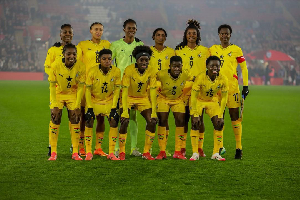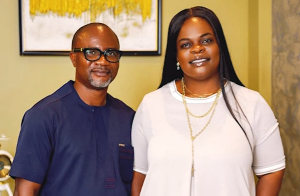Mr Ishmael Edjekumhene, Executive Director of Kumasi Institute of Technology and Environment (KITE), has called on government to manage the huge expectations of the public, because the completion of the Ghana Gas project would not completely solve the energy crisis.
He said the gas from the project was not enough to allow the country to build more power plants and that at best the gas would only replace the crude oil used at the Takoradi Thermal plant at Aboadze.
Mr Edjekumhene made the assertion during a multi-stakeholder information sharing session on the socio-economic impact of the Gas Commercialization project on the three host communities of Atuabo, Anochie and Asemda Suazo in Ellembele District of the Western Region.
The forum organized by the KITE, a civil society organization on Oil and Gas, was attended by the Parliamentary Select Committees on Energy, Trade and various stakeholder organizations and the media.
Mr Edjekumhene further stated that gas from the Atuabo plant was not going to make power cheaper as some people were assuming. He called for long term planning for the energy sector since there were no quick fixes to energy problems because if you wanted to bring new generation capacity, it took a minimum of 18 months to complete.
He also noted that the inflows into the Volta Lake last year was not good enough, so if we did not have good rains this year, it meant that by the time that the dry season set in, we would have very low water in the Volta Lake and this would be a massive problem for the country.
Mr Edjekumhene said the Environmental Impact Assessments (EIAs) in future projects of such magnitude should be done properly and farmers whose crops were destroyed to make way for the projected should be compensated on time.
Mr Clifford Adu-Biney, Senior Manager in-Charge of Logistics, Ghana Gas Company clarified that compensation had been paid to affected farmers whose crops were destroyed as a result of the gas project.
He said as far as he was concerned all compensations had been dealt with but if there were still some outstanding, that would also be handled appropriately in due course.
He said design capacity of the Ghana gas plant is 150 million standard cubic feet per day but they would only do 120 million standard cubic feet per day because it is risky to do the full capacity.
Mr Adu-Biney stated that when the plant would be commissioned at the end of March, 2014 it would take about three month for it to reach it peak production of 120million standard cubic feet per day.
Dr Steve Manteaw, Executive Director of ISODEC, stated he was disappointed about how the country had approach the gas infrastructural development project. He said in February 2008, following the first Oil Conference for Development in Ghana a technical committee was setup to develop a gas development master plan for Ghana and since that time that plan is still on the drawing board.
He said that "plan is the document which should have guided the country’s activities in the gas sector but since that plan was still on the drawing board speaks volumes about us as a people".
Dr Manteaw also noted the financing arrangement for the gas project was disappointing because knowing very well the gas meant so much to Ghana it did not make good sense to tie the gas project to the billion Chinese loans which was conditioned on the country meeting certain triggers.
He said the country’s inability to meet these triggers had cause a lot of delays to the completion of the project. He said there are lots of better bids for the project but SINOPEC were chosen because they were going to deliver the project on a record time of 42 months.
Dr Manteaw said since SINOPEC had not been able to achieve that record time the country lost on two fronts in terms of the financing arrangements and the completion time for the gas project.
Business News of Sunday, 23 March 2014
Source: GNA













